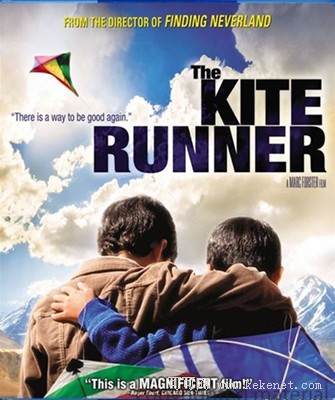I read it to him in the living room by the marble fireplace. No playful straying from the words this time; this was about me! Hassan was the perfect audience in many ways, totally immersed in the tale, his face shifting with the changing tones in the story. When I read the last sentence, he made a muted clapping sound with his hands.

"Mashallah, Amir agha. Bravo!"He was beaming.
"You liked it?"I said, getting my second taste--and how sweet it was--of a positive review.
"Some day, Inshallah, you will be a great writer,"Hassan said. "And people all over the world will read your stories."
"You exaggerate, Hassan,"I said, loving him for it.
"No. You will be great and famous,"he insisted. Then he paused, as if on the verge of adding something. He weighed his words and cleared his throat. "But will you permit me to ask a question about the story?"he said shyly.
"Of course."
"Well..."he started, broke off.
"Tell me, Hassan,"I said. I smiled, though suddenly the insecure writer in me wasn't so sure he wanted to hear it.
"Well,"he said, "if I may ask, why did the man kill his wife? In fact, why did he ever have to feel sad to shed tears? Couldn't he have just smelled an onion?"
I was stunned. That particular point, so obvious it was utterly stupid, hadn't even occurred to me. I moved my lips soundlessly. It appeared that on the same night I had learned about one of writing's objectives, irony, I would also be introduced to one of its pitfalls: the Plot Hole. Taught by Hassan, of all people. Hassan who couldn't read and had never written a single word in his entire life. A voice, cold and dark, suddenly whispered in my ear, "What does he know, that illiterate Hazara? He'll never be anything but a cook. How dare he criticize you?"
"Well,"I began. But I never got to finish that sentence.
Because suddenly Afghanistan changed forever.












